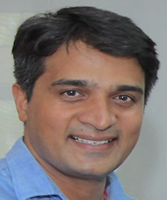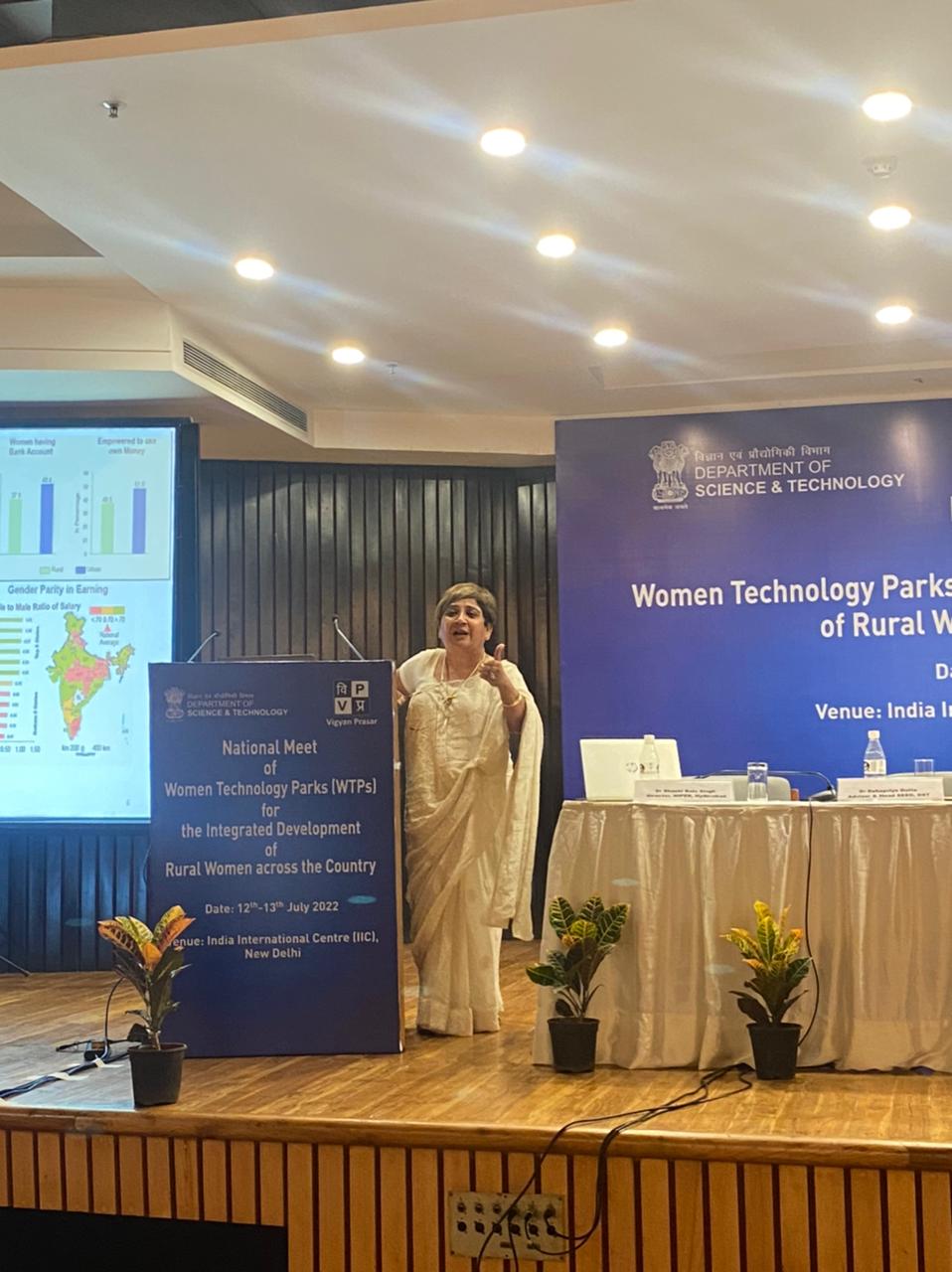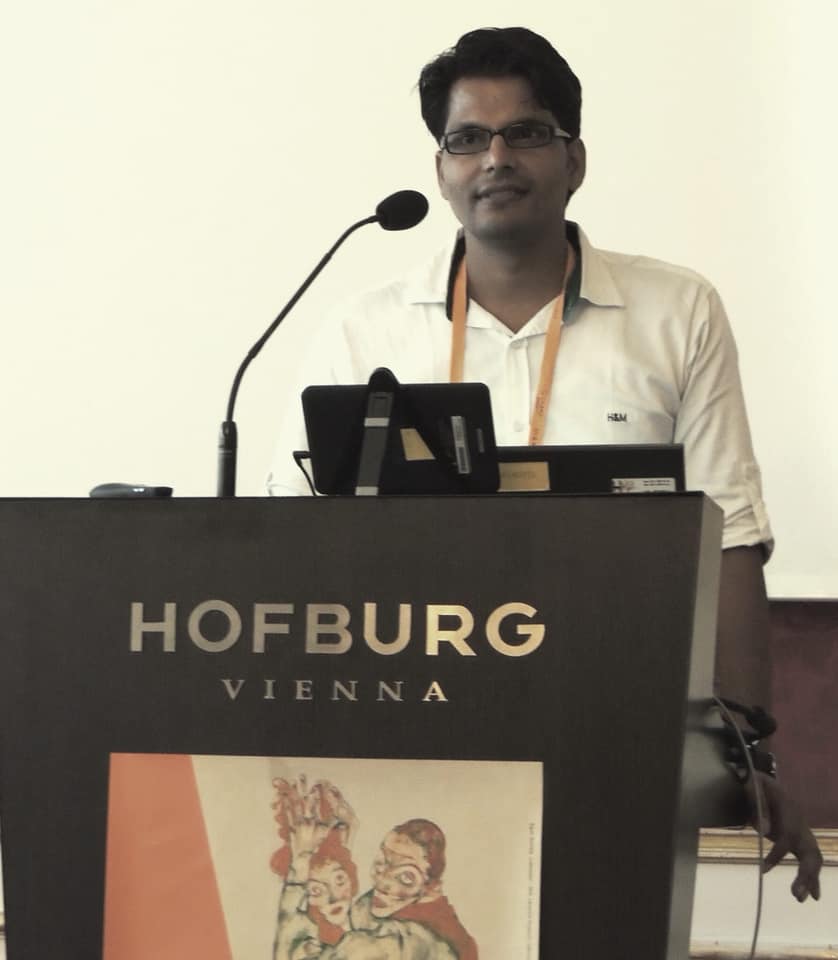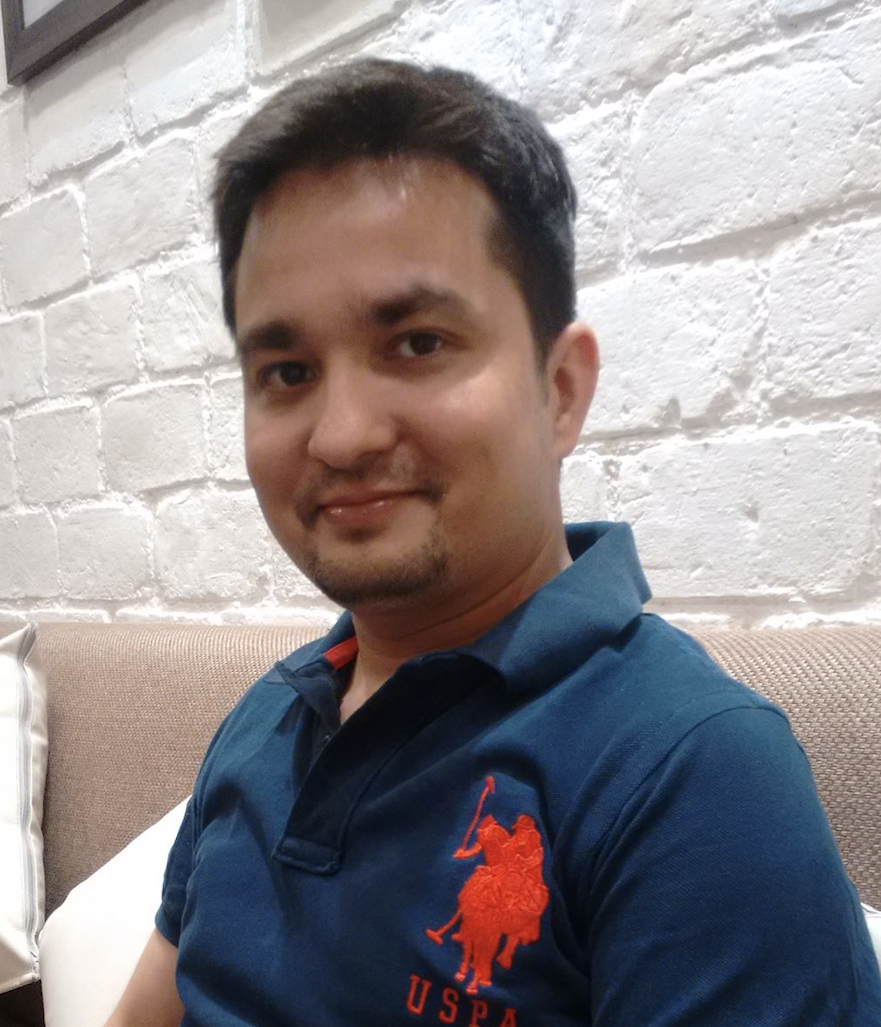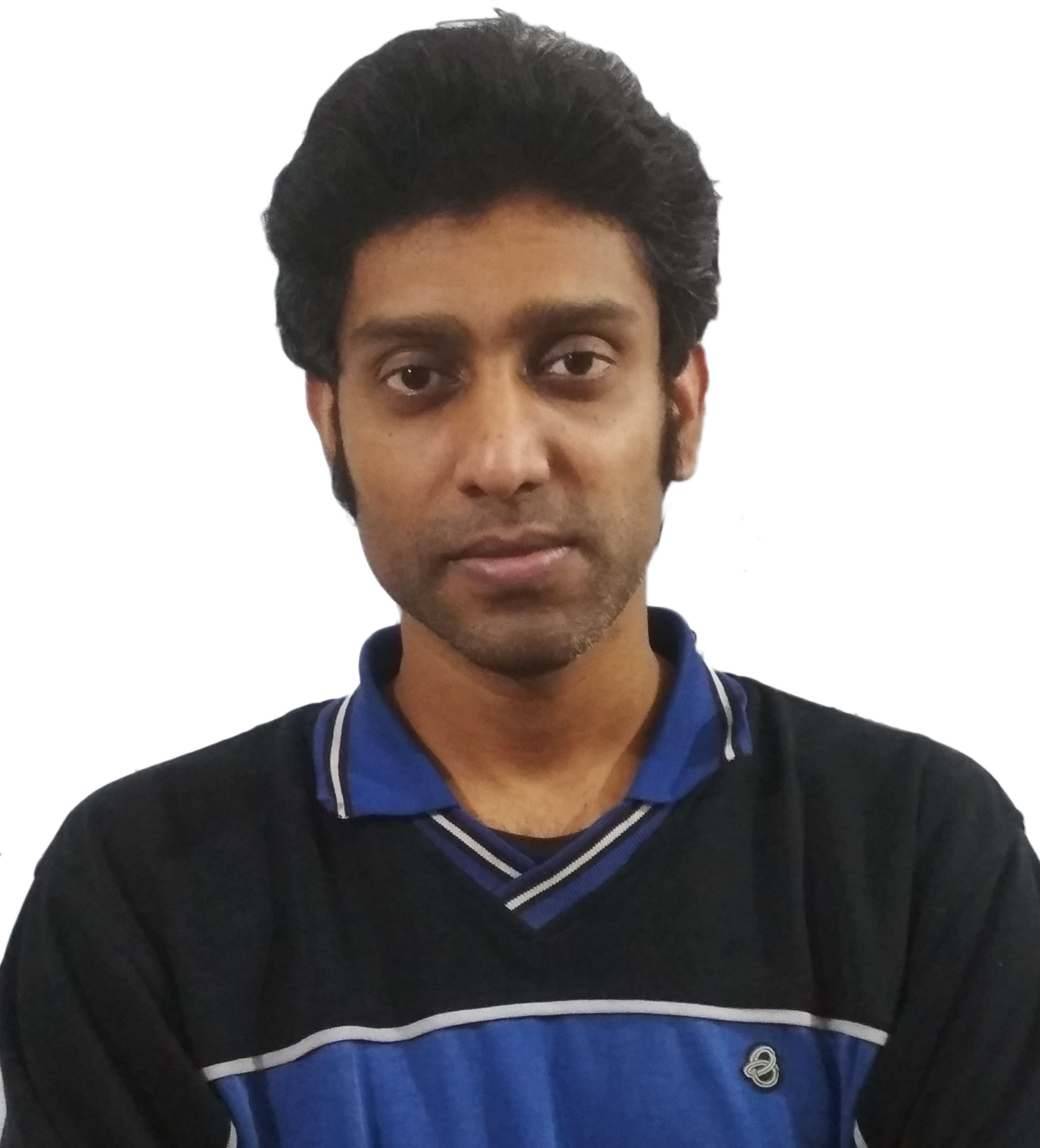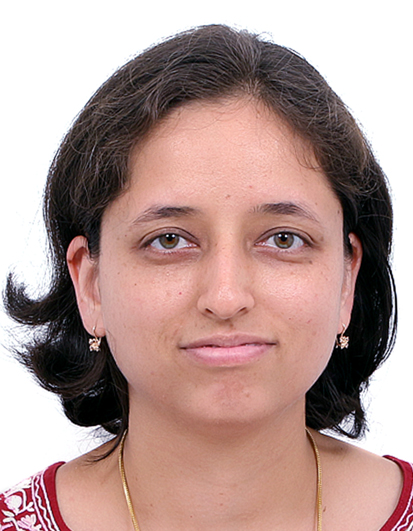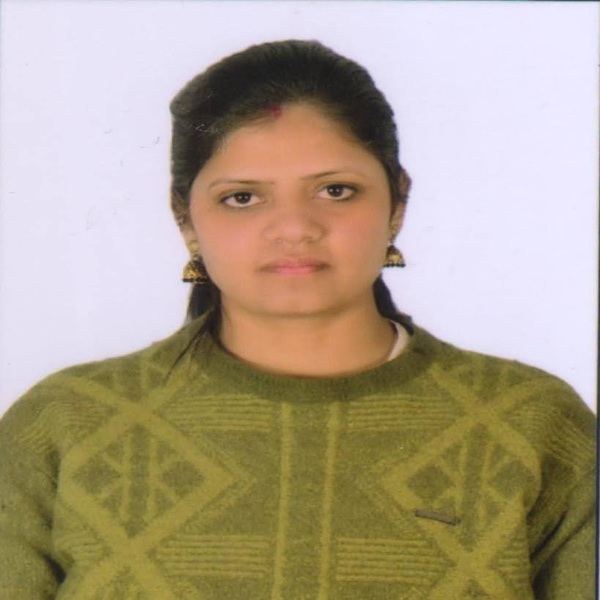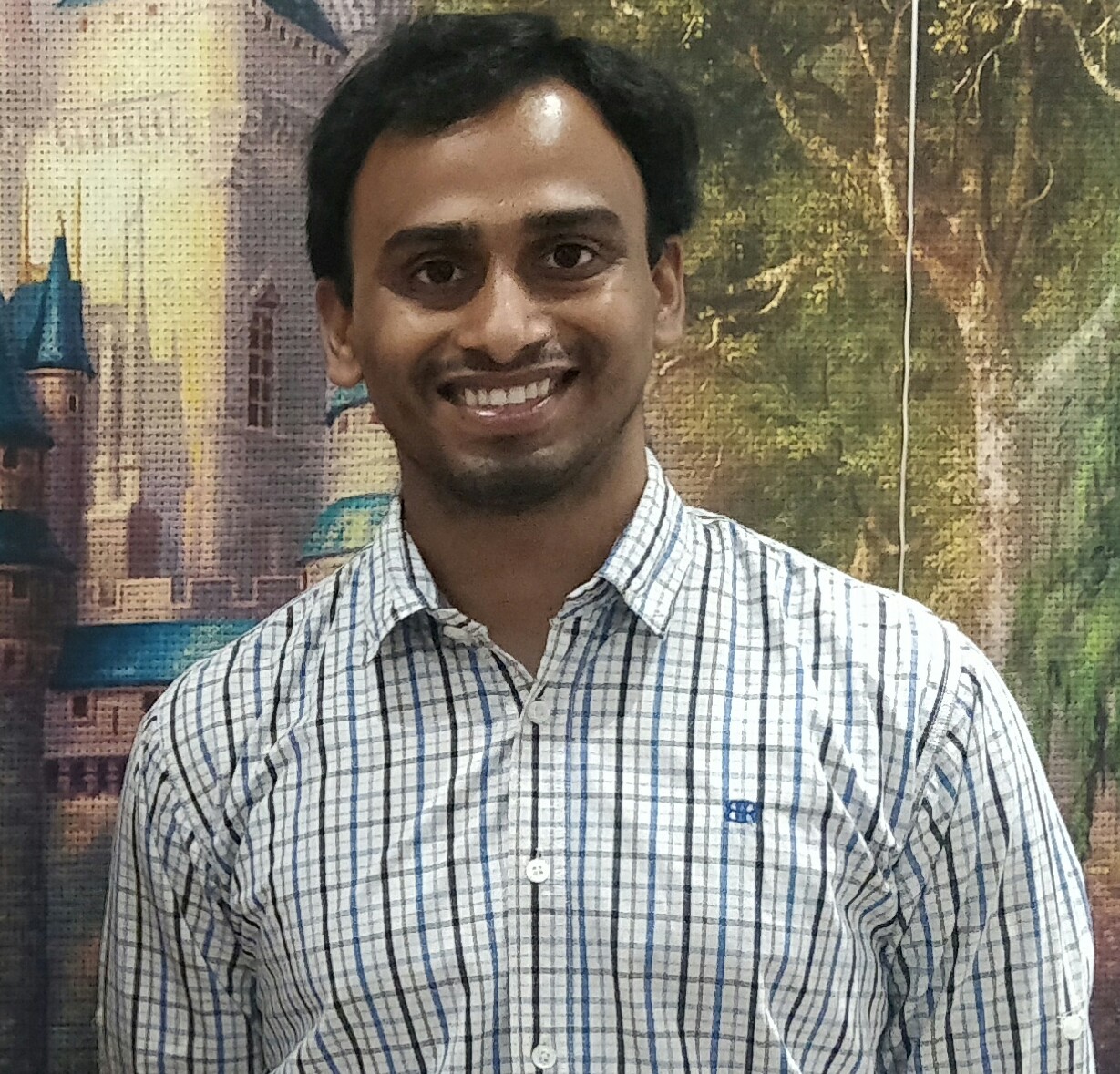Fellows
Dr. Brijesh Rathi
Dr. Rathi obtained Ph.D. degree in Chemistry from University of Delhi and currently working as Assistant Professor of Chemistry at Hansraj College University of Delhi, India. He was awarded Young Scientist Fellowship, Early Career Research Award from SERB-DST, Government of India; CAPES-Print Fellowship from Ministry of Education Brazil; and Excellence Award for In Service Teachers 2018) from University of Delhi. He obtained post-doctoral training in the group of Prof. Alexander Klibanov at Massachusetts Institute of Technology (M.I.T.), USA. He also acquired training as an Environment Health and Safety (EHS) Representative from MIT. Dr. Rathi is a Visiting Professor (2019-2022) at University of Debrecen, Hungary to conduct short-term courses for undergraduate and doctoral students. He successfully completed several joint bilateral research projects on drug discovery. He recently won a collaborative BRICS grant on therapeutic development against COVID-19 from DST, Government of India.
IoE Fellow
Dr. Rathi obtained Ph.D. degree in Chemistry from University of...
Dr. Indrakant K. Singh
The significant issues with the currently available medications are drug toxicity and drug resistance. My main area of study interest is finding inhibitors/agonists that are target-specific, have low toxicity, and have strong effects. My laboratory’s research focuses on cancer (breast cancer and neuroblastoma) and rare genetic disorders (Fibrodysplasia Ossificans Progressiva). We use both in silico and in vitro approaches to find inhibitors and agonists. CADD pipelines comprise molecular docking, MD simulations, 3D QSAR, scaffold, and fragment generation. We assess the screened chemicals for cell viability assays using human cancer cell lines, such as breast cancer and neuroblastoma presently being maintained in my lab). We are also working on identifying targeted delivery mechanisms to minimize the off-target effects associated with drug molecules. In addition, to extend my doctoral research work, where I worked on molecular & behavioral
aspects of insect-plant interactions, we have created a web tool called “NeuroPIpred.” With my interest in biological networks and differential expression analysis of cancer datasets, we are working on new databases and web tools development that will provide curated biological data on an accessible platform for the scientific community.
Dr. Singh’s Lab | Google Scholar | Research Gate | ORCID | LinkedIn
IoE Fellow
The significant issues with the currently available medications are drug...
Dr. Poonam
Dr. Poonam is a Fellow at the Delhi School of Public Health, Institution of Eminence (IoE), University of Delhi. She is leading an independent research group of doctoral students and postgraduate and graduate students in her research laboratory. Research-based on public health is extremely important and provides an excellent platform to collaborate with world- class institutes that opens an opportunity to explore the research methodologies. Her research interest has been focused on Drug Design and Drug Discovery. Her group is currently working on the discovery of new small molecules potent against infectious diseases such as SAR-CoV2, malaria, Zika virus, schistosomiasis, Leishmaniasis, etc. Several bioactive scaffolds based on heterocyclic compounds have been developed by her research group which is recently patented at the national and international levels. They have explored that slight modifications on the hit molecules have led to an enhanced bioactivity profile with reduced cytotoxicity.
IoE Fellow
Dr. Poonam is a Fellow at the Delhi School of...
Dr. Seema Mehra Parihar
Professor Dr Seema Mehra Parihar is presently a Fellow at Delhi School of Public Health (DSPH) , Institute of Eminence (IoE), University of Delhi and a Faculty at the Department of Geography at Kirori Mal College, University of Delhi, India. She is a teacher, researcher, and trainer of the trainers, speaker and author- a versatile member of academic community.
She has more than 35 years of experience in academics in the specific area of Gender, GIS, Remote Sensing; Natural Resource Management, Health and Field-based Research. Recently she was a Visiting Scholar at Le Havre University, Normandie, France and for last three years she is teaching a paper there offline and online mode. She has also been a teacher who has interacted actively with students and faculty members in India, Japan, France, Indonesia and other places. Her Ph.D. is on ‘Natural Resource Management in Bhagirathi Basin’ from the Department of Geography, Delhi School of Economics, University of Delhi, and a Post –Doc Fellow ,at Geo-Information Processing Department, the International Institute of Geo-Information Science and Earth Observation(ITC) Enschede, the Netherlands on the Netherlands Government Fellowship. She has also had her training from Indian Institute of Remote Sensing (IIRS), ISRO, and Dehradun in 1990 in geospatial tools and technologies.
IoE Fellow
Professor Dr Seema Mehra Parihar is presently a Fellow at...
Dr. Subash Chandra Sonkar
Being a citizen of the Low Middle Income Country (LMIC) and a Public Health professional, I am working with the objective of minimizing the risk of death with the practice of affordable & deliverable disease management strategies for improving quality of life and reducing human suffering. I learned from my previous exposures and pieces of training during conducting scientific research and transform it into translational research to educate about health and work to assure the conditions in which people can be healthy. I decided to address public health concerns “Role of Viral / None Viral Sexually Transmitted Diseases causing adverse birth outcomes in women & and development of WHO-ASSURED Guidelines based point care of test”
Dr. Sonkar is currently working as Research Scientist (Multidisciplinary Research Unit) at Maulana Azad Medical College and Associated Hospital, New Delhi, India. Previously, He Worked as Technical Advisor at the Indian Council of Medical Research (ICMR) New Delhi in the National Mental Health Capacity Building program and as GHES Postdoctoral Fellow, at Florida International University in collaboration with the Public Health Research Institute of India and National Postdoctoral fellows of SERB- DST (Govt of India). Dr. Sonkar did his Master in Microbiology from Banaras Hindu University (BHU) Varanasi and Doctorate in Biomedical Science from Dr. B. R. Ambedkar Centre for Biomedical Research (ACBR), University of Delhi, India.
LinkedIn | Twitter | PubMed | Google Scholar | Vidwan Profile | Research gate | Orcid
IoE Fellow
Being a citizen of the Low Middle Income Country (LMIC)...
Prof. Anita Kamra Verma
Professor Anita Kamra Verma is working as Group Leader of Nanobiotech Lab, at Kirori Mal College, University of Delhi since 2003. Prof Verma a highly experienced nanobiotechnologist whose work is focused on cancer nanotherapeutics. Her research interests include developing in vivo models for quantifying nanoparticulate drug delivery for cancer, arthritis, wound healing and diabetes, and making rationale designs based on whole body and cellular pharmacokinetic–
IoE Fellow
Professor Anita Kamra Verma is working as Group Leader of...
Dr. Ankit Mathur
My primary focus of research is to understand the molecular dynamics and cellular plasticity during the microevolution of transforming cells leading to therapy resistance and inadequate
management of cancer. During my Ph.D. at the Institute of nuclear medicine and Allied Sciences (INMAS, DRDO) with Dr. Sudhir Chandna, I elucidated the low-dose radiation
sensitivity and cellular adhesion dynamics during progressive stages of neoplastic transformation. While studying the plastic nature of the transforming tumour cells, I was
quite fascinated by the sub-clonal hierarchical organization of the tumour acquired during cancer stem cell differentiation. As a postdoctoral fellow, I joined Prof. Daman Saluja’s lab at
University of Delhi, where we identified a natural product to target multiple pathways that regulate the self-renewal, growth, survival, differentiation in Acute Myeloid leukemic stem
cells (LSCs), as well as concurrent EMT in solid tumour stem cells for a possible complete remission.
Despite recent advancements, the incidence of Acute Myeloid leukemia (AML) has been steadily increasing where India stands at the top three countries exhibiting maximum AML
burden around the globe. A huge unmet need exists to develop a diagnostic/prognostic workup for more accurate and personalized risk stratification and treatment planning. At
DSPH, our research focuses on the specific biological properties of Leukemic Stem Cells (LSCs), to develop additional management strategies for a refined risk stratification system to
allow health policymakers, physicians, patients, and society as a whole, to raise awareness as well as improved clinical outcomes in AML.
Mkpdf
My primary focus of research is to understand the molecular...
Dr. Parth Pratim Pandey
Anxiety and depression disorders are immensely debilitating and ubiquitous psychiatric conditions with substantial resistance to current forms of treatment strategies. They are commonly characterized by frequent relapses and high percentages of suicidal ideations and suicide attempts. An urgent need therefore exists to explore the intrinsic mechanisms of these disorders and develop more effective treatment strategies. Recent experimental findings indicating that the gut microbiota composition can have deep-rooted consequences towards alleviating or relieving mental disorders have raised hopes towards a microbiota based therapeutic strategy. However, our inability to successfully modulate/control the microbial community towards a desired state have tremendously hindered progress in realising these microbiota based therapeutic strategies. In particular, a lack of holistic understanding of the gut-microbiota dynamics and inconsistency in microbiome data has been a major hindrance in this goal.
Using my theoretical training I plan to develop mathematical and computational models to understand: (i) the basic governing features driving gut microbial dynamics, and (ii) the influence of gut microbiome in the genesis of certain complex disorders, e.g., anxiety disorders. Such models can provide quantitative and holistic understanding of these highly complex non-linear systems and help devise therapeutic strategies to modulate disrupted gut microbiota towards desired compositions.
I am also involved in constructing mathematical models to enhance our understanding of other complex diseases like Type 2 diabetes where classical treatment approaches focusing solely on a few components have been found inadequate to achieve long-term and permanent cure of these complex disorders. My approach will be to consider such disorders as complex adaptive systems requiring non-traditional investigational approaches.
Further, I would also like to work towards understanding human-environment interactions with focus on its impacts on the fast depleting natural ecological ecosystems. I believe mathematical models integrating cognitive psychology (e.g., controlled and automatic decision making) and game-theoretic evolutionary dynamics can be beneficial in understanding and devising strategies to solve modern challenges.
About me: I am Parth Pratim Pandey, MKPDF scholar at DSPH, IOE at the University of Delhi under the mentorship of Prof. Sanjay Jain (Prof. at the Dept. of Physics and Astrophysics, University of Delhi). I am a theoretical systems biologist currently engaged in basic science questions that deeply impinges on public health issues. I obtained my PhD from the Dept. of Physics and Astrophysics, University of Delhi under Prof. Sanjay Jain. My PhD thesis is titled “Mathematical Models of Cells: Bacterial Growth Laws, Size Control and Balanced Growth”. After PhD I did my Post-Doctoral research under Prof. Sergei Maslov at University of Illinois at Urbana-Champaign, USA, where I worked on mathematical modelling of bacterial ecosystems.
Mkpdf
Anxiety and depression disorders are immensely debilitating and ubiquitous psychiatric...
Dr. Shruti B Mathur
Pain is a multi-faceted pathophysiological condition with a wide variety of causes. It is an unpleasant sensory and emotional experience associated with, or resensing that associated with, actual or potential tissue damage. Chronic pain, as associated with Rheumatoid arthritis, endometriosis, requires not only special treatment and care, but clear understanding of it’s biology.
At DSPH, I am involved in designing novel therapies to combat such chronic pain states. The opioids are gold standard for chronic pain management but their use poses a challenge for clinicians due to development of tolerance to pharmacological action and it’s abuse potential. Cannabinoids sourced from Cannabis sativa, are implicated to act via endocannabinoid system and appear as lucrative non-opioid analgesics for management of chronic pain. They act centrally via CB1 and CB2 receptors to mitigate complex neural pain pathways. There is scanty information on the regulatory mechanisms and implications of these GPCRs. Using my domain knowledge of structural biology and MD simulations, I want to target the niche area of protein-protein interactions that may regulate the membrane bound receptors of the central nervous system. Such studies can provide leads that can be translated to develop therapies for pain alleviation with diminished abuse liability.
Mkpdf
Pain is a multi-faceted pathophysiological condition with a wide variety...
Dr. Usha Rani
Urban waste disposal and management has emerged as a crucial major environmental issue of today’s time, and has gained significant importance in the area of public health. Being important stakeholders in the waste management process, Rag-Pickers are forgotten invisible true environmentalists- the unsung heroes of solid waste management. During my doctoral research, I have done extensive field work and found that due to involvement in the hazardous occupation, directly exposed to waste materials, there is a high prevalence of various diseases among rag pickers. They are highly stigmatised & vulnerable and playing very immense role in the informal waste management sector at the cost of their health. In order to have an inclusive society and sustainable India, there is dire need to investigate their critical health issues at micro level.
Myself is Dr. Usha Rani have done post-graduation in the discipline of geography from Choudhary Charan Singh (CCS) University, Meerut (Uttar Pradesh), and was awarded Ph.D. on Solid Waste Management from the Department of Geography, Delhi School of Economics, (Faculty of Social Sciences), University of Delhi in 2021. Currently, I am pursuing advanced research as a post-Doc Fellow focusing on Occupational Health Hazards of Rag pickers from the premier institution, Delhi School of Public Health (DSPH), Institute of Eminence (IoE), University of Delhi. I plan to diagnose their health issues and prepare feasible strategies to build resilience, reduce risk & vulnerabilities for the sustainable livelihood and health security for achieving sustainable development goals. I have published a few articles and research papers in various peer-reviewed & UGC-CARE listed journals and books. I have given many paper presentations in different conferences and seminars/webinars. I am a life member of various professional bodies such as National Association of Geographers, India (NAGI), Association of Geographical Studies (AGS) and National Geographical Society of India (NGSI).
Mkpdf
Urban waste disposal and management has emerged as a crucial...
Dr. Vishal Singh
Neurological disorders have become public health challenges in recent decades. Several recent studies support the role and importance of intestinal health and its microbiota in neurodegenerative disorders. The gut-brain axis, a bidirectional communication system, allows the gut microbiota to communicate with the brain and vice-versa. However, factors associated and their mechanistic aspects to influence the neurodegenerative disorders are still unclear.
The massive development of digital data and computational methods allow us to build adequate models of biological systems and related diseases using systems biology approaches to get insights into the role of gut microbiota in neurodegeneration. In this context, we use an interdisciplinary approach to explore the gut-brain interactions and functions from molecular to systems level by treating the brain as a complex system rather than a separate entity. We extensively explore the role, pathways and effect of neurotoxic substances such as short-chain fatty-acids and lipopolysaccharides (that produced by the gut microbiota) in the blood brain barrier and in the brain and find the new therapeutic approach to reduce the effect of these neurotoxic substances in the brain and the barrier. We also focus on the immune reaction of the translocated bacteria/acids in the brain which lead to neurodegeneration. Based on research data, we use multivariate mathematical models with a stochastic and statistical approach to estimate the pathways and prevalence of the neurodegenerative disorders on the onset of age. This study may lead to the discovery of novel biomarkers in the neurodegeneration that may provide an earlier diagnosis before the development of neurological symptoms.
About me: I received my bachelor’s degree in Chemistry (Hons.) in 2011 from Banaras Hindu University, Varanasi; and Master’s degree specialized in Physical Chemistry in 2014 from Hindu College, University of Delhi, Delhi. I have completed my doctoral degree in 2021 in the area of Theoretical and Computational Biophysical Chemistry under the supervision of Prof. Parbati Biswas from Theory and Simulation Lab, Department of Chemistry, University of Delhi, Delhi. My thesis title is “Stochastic Dynamics of Protein Misfolding and Aggregation”. I have worked on the theoretical and computational study of the kinetics and dynamics of the protein folding, misfolding and aggregation in terms of the neurodegenerative disorders. My research work also includes the mathematical analysis of barrier crossing problems for the two state transition of protein and nucleic acids.
Mkpdf
Neurological disorders have become public health challenges in recent decades....
